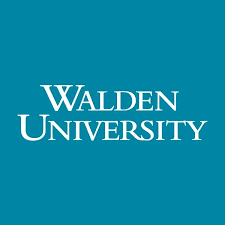
Abstract
This issue of Higher Learning Research Communications (HLRC) features research focused on some of the challenges colleges and universities are facing in this new century, as the world becomes more and more technology focused and internationalized. New learning and teaching paradigms in higher education institutions across the globe highlight the need to constantly innovate educational programs in order to remain relevant and accessible across disciplines and frontiers alike.An entity that has been ahead of its times for decades has been the International Baccalaureate (IB). As Dr. Ian Hill and Dr. Susan Saxton explain in their article, “The International Baccalaureate (IB) Programme: An international gateway to higher education and beyond”, the Diploma Programme of the IB allows students to obtain internationally recognized university entrance qualifications. At the same time, students develop critical thinking skills, international mindedness, and intercultural understanding, among other valuable skills in globalized economies and societies. Furthermore, research has shown the international recognition and the skills acquired through the IB Diploma allow students to better succeed in both higher education and their professional careers.As higher education becomes more and more internationalized, higher education institutions must also deal with the challenges of training international faculty. As Dr. Kevin R. Meyer and Dr. Yuping Mao point out in their article, “Comparing student perceptions of the classroom climate created by U.S. American and international teaching assistants”, past research has shown students tend to rate international teaching assistants (ITAs) lower that their local counterparts. Although this could have important repercussions for learning outcomes, little research has been conducted in this area. Meyer and Mao’s research suggest institutions should be proactive in encouraging students to value cultural differences while helping ITAs to create a classroom climate that promotes cultural understanding.Another challenge higher education institutions are facing is integrating distance learning into their curricula. Research has shown blended learning can be a powerful and effective teaching tool. However, as researchers Christopher P. Johnson and Debra Marsh point out in their article, “Blended language learning: An effective solution but not without its challenges,” the success of blended learning programs depend on both proper teacher training and student involvement and motivation.Sustainability is also emerging as one of the main challenges of this new century. As such, colleges and universities are starting to develop curricula focused on Education for Sustainable Development (ESD). As national and international awareness rises regarding the human impact on the environment, societies, and economic systems, these higher education programs seek to help students understand the past in order to affect positively the present and foresee and prevent problems in the future. Researchers from the Universidad Europea de Madrid, in their piece, “Education for sustainable development in higher education: State-of-the-art, barriers, and challenges”, present recent literature on the subject and propose steps higher education institutions could take in order to implement a sustainability plan.
Recommended Citation
Editors, T.
(2014).
Editorial.
Higher Learning Research Communications, 4 (3).
Retrieved from https://scholarworks.waldenu.edu/hlrc/vol4/iss3/5






